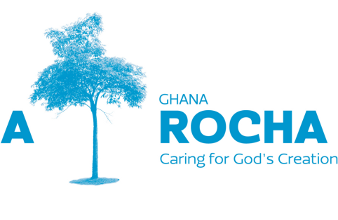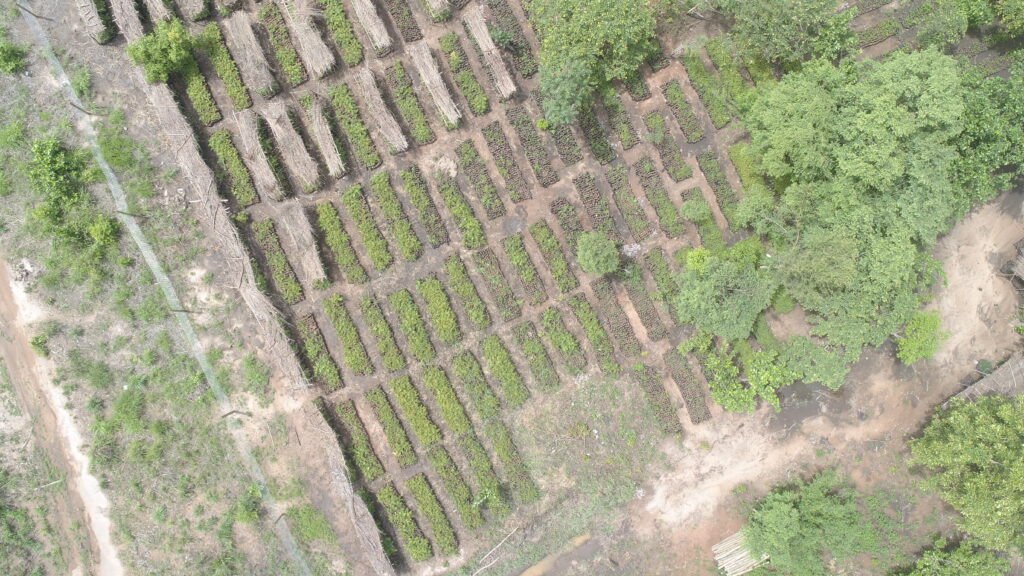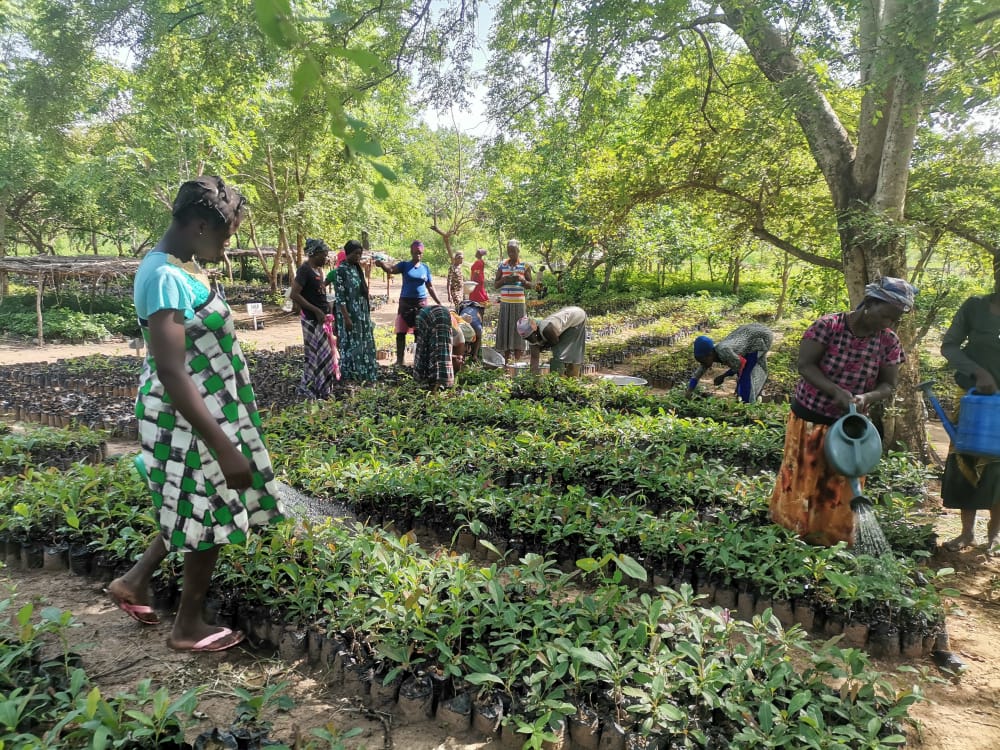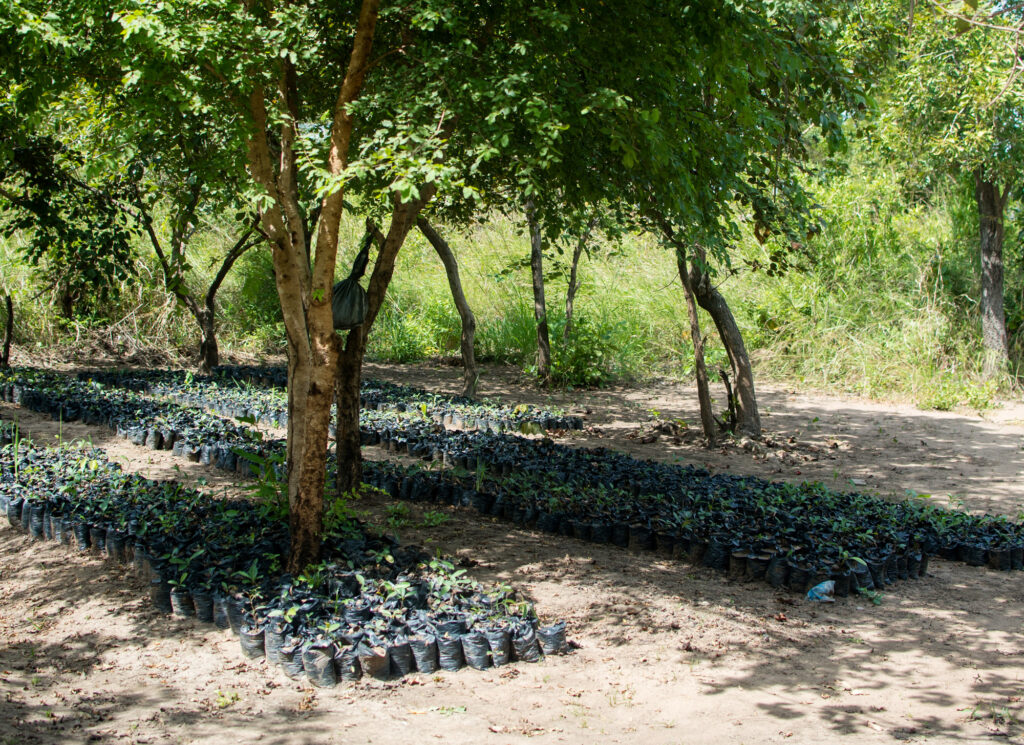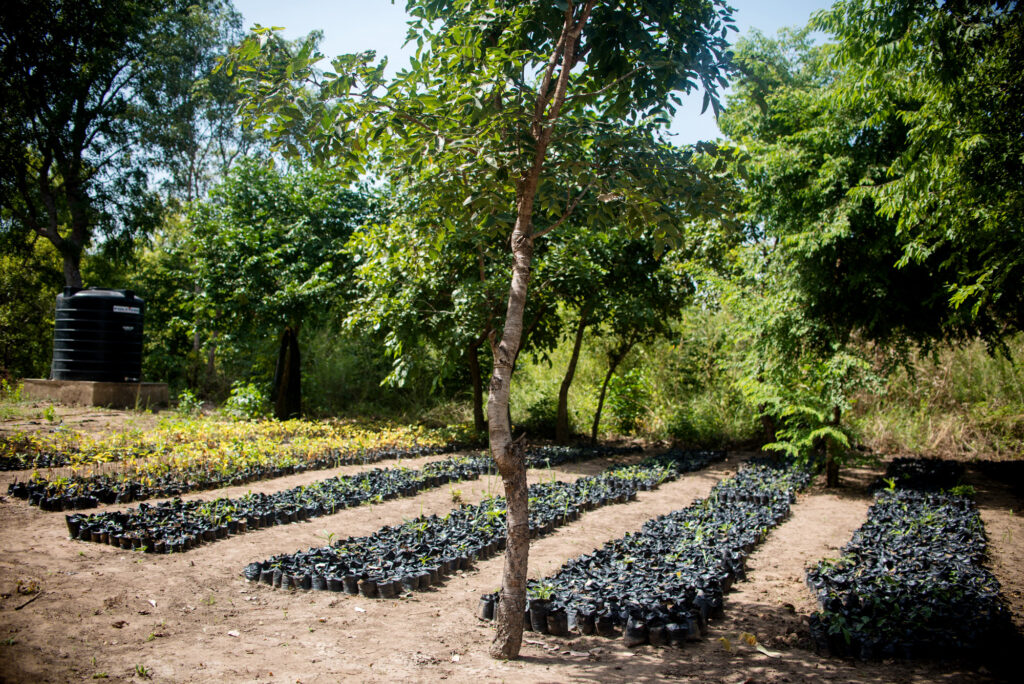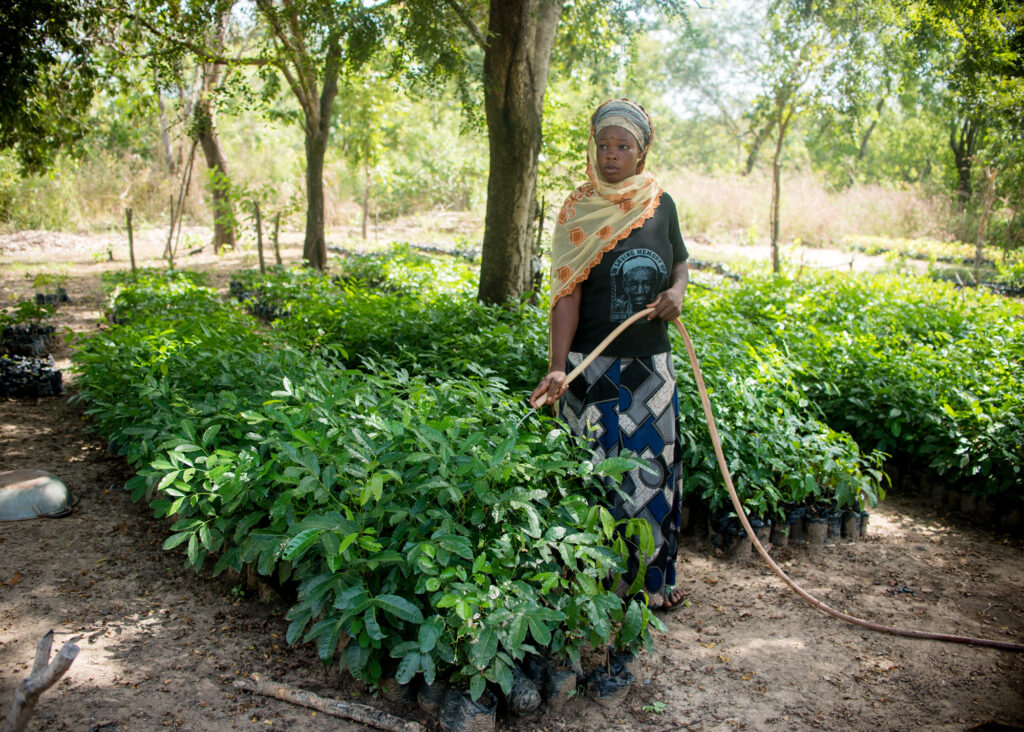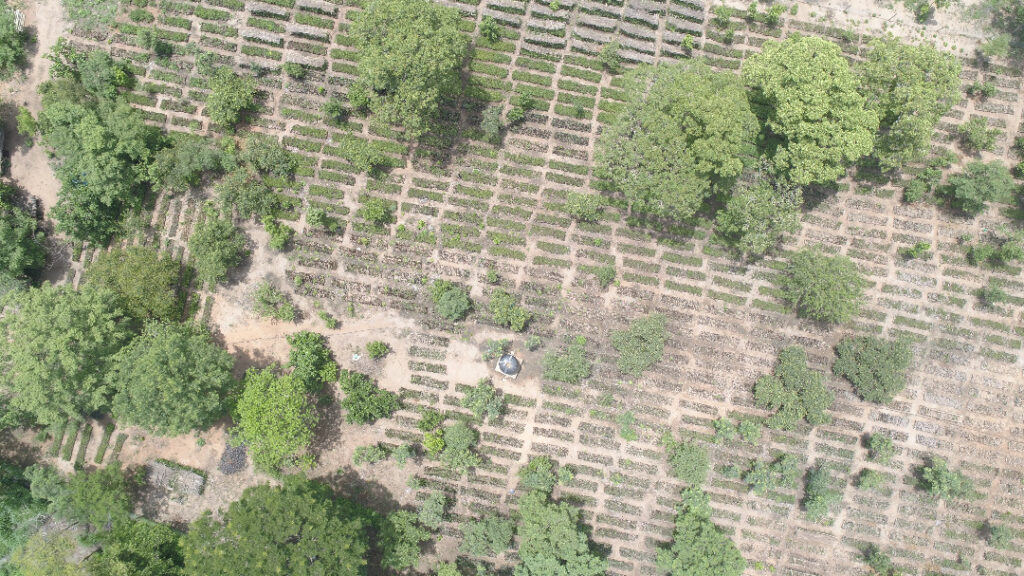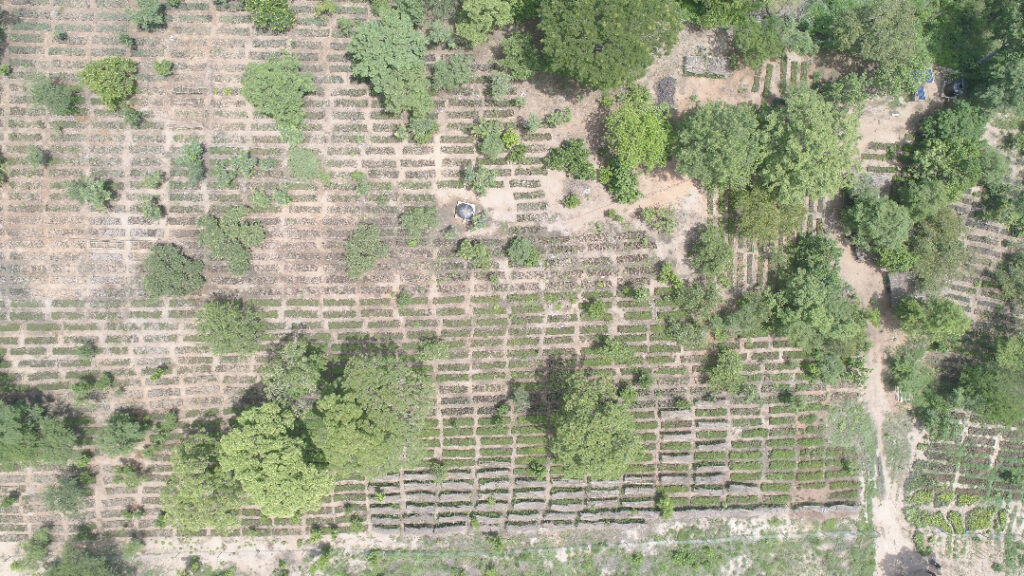A Rocha Ghana’s 500,000 Seedling Capacity Nursery Inundated By Floods
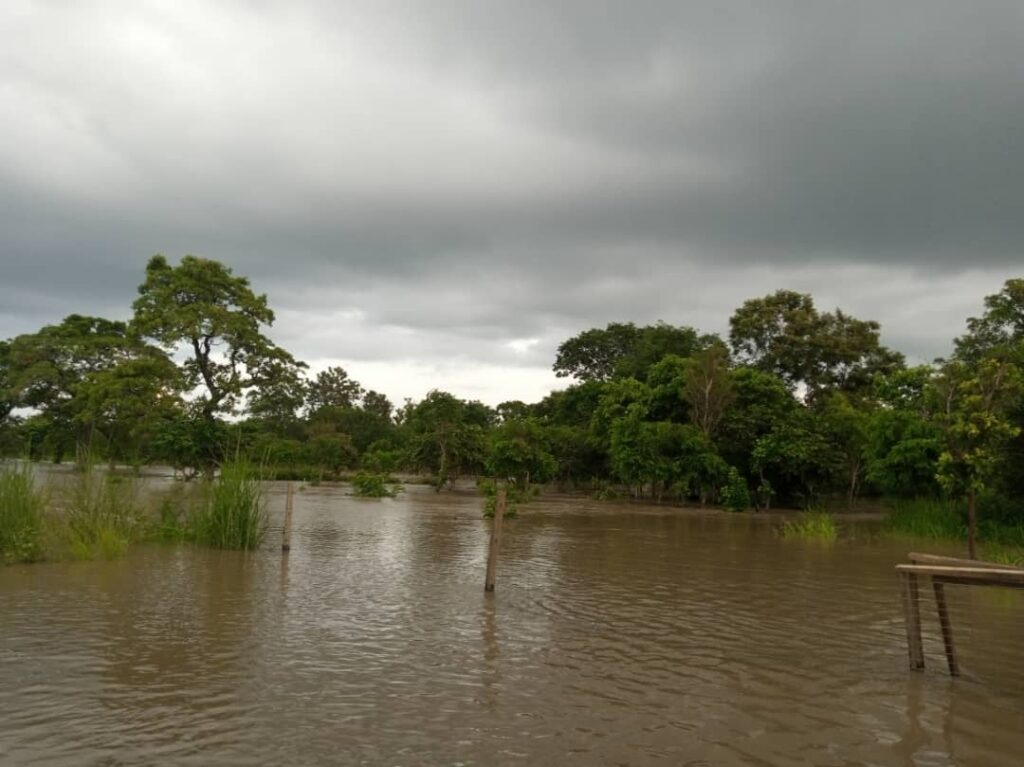
Aftermaths of torrential rains in the northern parts of Ghana
This year’s rains did not come as expected, but when it did, it came with torrential force as has been the case lately, leaving many communities and people in the northern parts of Ghana, vulnerable to flood risks.
In the Upper West, the Director of the National Disaster Management Organisation (NADMO), Mr Mustapha Ahmed, reports that a total of 1,605 people had their 722 farmlands washed away while 336 households got destroyed, after several days of heavy downpour resulting in many streams and rivers overflowing their banks.
Sadly, A Rocha Ghana’s 500,000 tree seedlings capacity in Mognore established with joint support from GIZ and IUCN NL for the supply of native tree seedlings for landscape restoration works in the Mole landscape, got inundated by floods waters. The nursery has been the main source of native trees seedlings like shea, mahogany, dawadawa, kapok, tamarind, rosewood, and moringa raised and distributed to communities for ARG’s large-scale landscape restoration activities in the Savanna Region around Mole National Park.
This year, the nursery raised over 500,000 seedlings for restoration and woodlot activities funded by the German Federal Ministry of Environment, Nature, Nuclear Safety (BMU), with support from the Ministry of Lands and Natural Resources, and the Ministry of Energy.
According to the Deputy National Director for A Rocha Ghana, Mr. Daryl Bosu, this has never happened in the more than 15 years of A Rocha Ghana’s presence in the area.
“What this means is that seedlings in store for woodlot and restoration beating up activities, as well as those being nurtured for next year’s landscape restoration planting activities, will be lost if the water does not recede in a week. Unfortunately, we share the same fate with several community members whose farmlands were also destroyed by the flood waters.
“We are even more terrified, of what will happen should our neighbours in Burkina Faso, open the Bagre Dam as is done every season when the rains become too much, ” he said.
Adaptation Must be a Development Priority
According to Mr. Bosu, the unfortunate development is undoubtedly an effect of climate change—a phenomenon that has left many parts of the world in disarray.
He said, the unpredictability of the weather coupled with the erratic nature of the rainfall pattern has made it almost impossible for farmers to determine when to plant or harvest their crops and further exposing them to flood risks, when the rains eventually come.
“This highlights the urgent need to prioritize climate adaptation mechanisms to address some of these vulnerabilities,” he added.
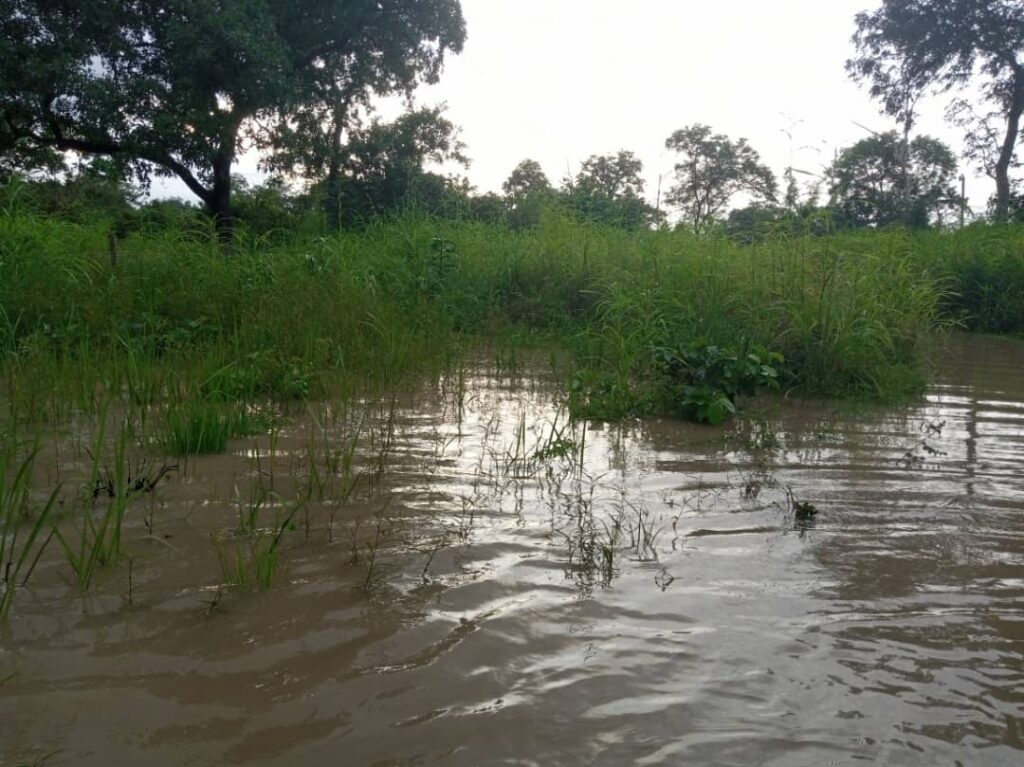
Many farmlands and households have been destroyed, after several days of heavy downpour resulting in many streams and rivers overflowing their banks.
It is not just farms and seedlings that have been affected by the bursting of the Mognori river banks. Properties, road networks and an entire bridge that links one side of the river to the other, is under water— leaving residents stranded on either side.
To enable community members cross to either side, they have to resort to canoes.
Climate Action Now
For the past one week, the word ‘Climate Change’ has been on the lips of many environmental watchers after the Intergovernmental Panel on Climate Change (IPCC), issued a report with stark warnings on climate change.
The world over, while some areas have been gutted by fire due to overbearing heat waves, others have been faced with giant storm surges and some of the biggest waves on record; others are currently bearing the impact of earth quakes. Every one seems to have a share of the ‘cake’.
Impacts identified specifically for Africa in the IPCC report include increased monsoon rains for West Africa over the mid-to long-term, and delays in both their onset and retreat. Frequencies and intensities of rainfall and flooding will increase over most of Africa and Asia even at a 1.5 °C rise in temperature, the report stated.
With climate science indicating that future inundations, fires and other forms of disasters are more likely, it is incumbent for all and sundry to assume more responsibility where the need be.
According to A Rocha Ghana, action by Ghana is also critical to the overall global action.
“We need to prioritize mitigation and adaptation mechanisms more than ever. We need to ensure all investments, public and private, prioritize and enhance our adaptive capacity and help build resilience at levels of our governance and socio-economic development sectors,” they said in a statement.
Read Full statement HERE
The Nursery Capacity before the floods
